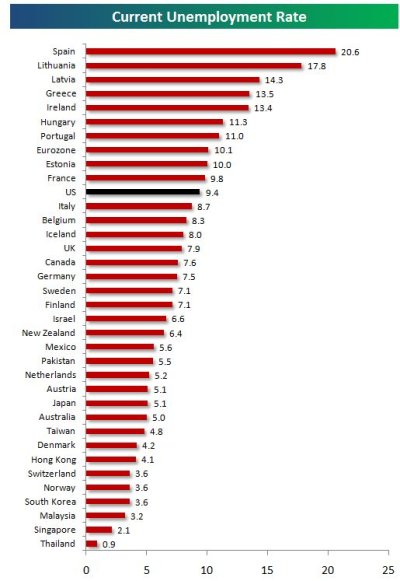Creative destruction is nothing new. Nor is productivity growth that destroys jobs. In 1870 75% of all jobs were agricultural, now only 2-3% are. Manufacturing employment in the U.S. has declined by 40% from it's peak, and yet our manufacturing output is 75% higher. If thousands of years of innovation haven't prevented economies from reaching full employment before, I have no reason to believe it will now.
Considering that we were at full employment just a couple of years ago, it is hard to pin the current high unemployment rate on innovation. Nothing really new changed in the past few years that would account for an additional 7-8MM workers becoming obsolete. Rather the old explanations still serve best. A fall in aggregate demand caused by a tightening of lending standards has resulted in an economy with excess capacity. That excess capacity will persist until the constraints on overleveraged players are somehow relaxed. If debt paydown is the the sole, or primary, path to relaxing those constraints, the process will take several years. But the situation is not permanent.

